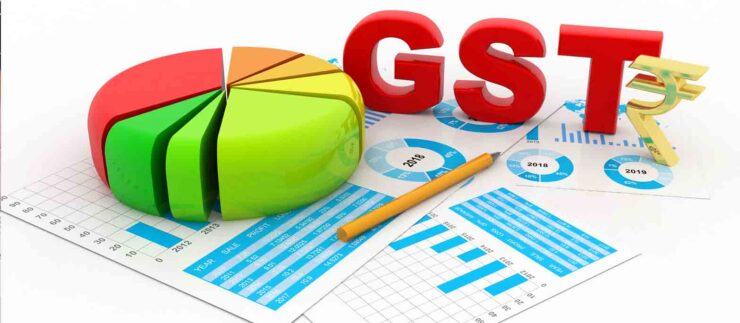GST or Goods and Service Tax, an indirect tax regime, was introduced on 1st July 2017 to simplify the entire taxation process for SMEs that contribute to 50% of industrial output. Earlier with multiple tax systems, small businesses had to deal with the burden of filing for different taxes like service tax, VAT, and other returns separately. The implementation of GST has brought uniformity in taxation, reduced transaction costs, etc.
However, before getting involved, every entrepreneur must know different aspects and types of GST.
Crucial points every entrepreneur must know about GST
After applying for GST, businesses receive a 15-digit unique number called GSTIN, which comes with certain advantages like limited tax payment and lower tax rates, improved logistic status, etc. Other than that, a GSTIN also comes in handy while applying for business loans, as that helps in establishing your credibility as a borrower.
- GST registration
It is compulsory for businesses with an annual turnover of more than Rs.40 lakh (supplier of goods) and Rs.20 lakh (supplier of services) to get a GST registration.
For this, a business can easily register for GST online. However, after getting registered, it is mandatory to comply with all the GST laws regarding E-way bills, invoices, accounts and records, etc.
- Different types of GST
To curb indirect taxes and distinguish between intra-state and inter-state supplies, etc., four types of GST like CGST, SGST, IGST, UGST got introduced.
Note that the GST is not received by a state where the goods are manufactured, rather by the state where these are consumed. Business owners should know all the aspects of each GST type properly to avoid unnecessary hassles.
- Impact on working capital
GST is directly linked with a business’s working capital requirement, which would inevitably increase if your supplier does not comply with tax filings norms. GST was supposed to be implemented as a single tax initially. However, later the Central Government decided to come up with four different tax slabs, where the current rates are 5%, 12%, 18%, and 28%.
While importing raw materials from other countries, 18% GST will be levied on the manufacturer instead of an import duty of 14% under the old slab. These significant changes automatically result in an increase in the business’s working capital. Even in terms of inventory management, SMEs are able to earn substantial savings on their business working capital due to the reduction in the number of warehouses.
- Filing of returns
Paying tax on time is necessary in order to file GST returns, and businesses with annual turnover up to Rs.5 crore can file returns on a quarterly basis. However, taxes should be paid on a monthly basis to make use of this facility. With easy access to internet facilities, you can quickly file your GST returns online. You just need to have your GST number and choose the right GST form to complete the process. Additionally, you should be aware of different types of GST before initiating the filing procedure.
The receipts of GST returns come in handy when entrepreneurs are planning to opt for business loans to finance their ventures. This further helps in increasing their business loan eligibility and getting attractive deals on interest rates as well.
Lending institutions like Bajaj Finserv also provide pre-approved offers on several financial products like business loans, personal loans, etc. These offers help expedite the loan application process. To check your pre-approved offer, you need to submit your name and contact number.
- Valuation
GST or Goods and Service Tax is payable on the transaction value, which means it will be levied on supply or the sale of goods and services. GST is also applicable on products that are being transferred, exchanged, etc. However, in case there are incentives applied to these products, those will also get adjusted in the transaction value.
Note that once you get your business registered for GST, you need to identify the tax rates that will be levied on the goods and services. To do that, you can visit the online portal of GST, where the tax rate is given, including its HSN code for goods and SCN for services. You should also know that these codes play a vital role during return filing; therefore, make sure these are accurate before you go ahead and file for GST returns.
The digitalisation method has enabled entrepreneurs to simply utilise the Self Assessment Model to ensure GST compliance via the official portal. Note that all the documents related to this tax are important and mandatorily used to get a collateral-free business loan with ease. Getting them prepared increases your loan eligibility and ensures prompt approval.
Despite struggling with the economic downturn in 2024, the Indian business sector showed remarkable resilience by paying GST dues on time. According to reports, GST collections have consistently been over Rs.1 trillion for the last couple of months, helping the economy to recuperate from the recession. Every entrepreneur must know everything about GST in details in order to be able to file the returns efficiently.




























